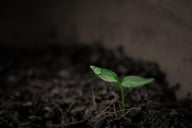You have /5 articles left.
Sign up for a free account or log in.
These days, I go to bed thinking about sickness and death, I dream about sickness and death, and I wake up reflecting on the sickness and death that will be revealed that day. It’s a far departure from when I simply agonized over my dissertation and graduate coursework 24/7. My main concerns were proving my academic mettle and practicing mindfulness to reduce stress; now, many of us in academia are simply trying to grapple with our new normal, the emerging risks, and the unknown unknowns.
For my own sanity’s sake, I intermittently avoid focusing on breaking news. But then again, when you crave factual information that could literally save your life and the lives of those you care about, you intentionally seek out purposeful data with meaningful interpretation – the only accurate data, as our academic research mentors instructed in those early research inquiry courses.
Amid this horrific COVID-19 pandemic, a surreal historical experience, higher education leaders presume that we keep our academic wits and persevere now, into the fall, and perhaps beyond, even as schools make contingency plans for faculty illness and death, anticipate steep enrollment declines, and weigh systematic campus viral testing measures.
Whether grad students, early career researchers or more established scholars, we’ve all been impacted by this new highly contagious respiratory virus. When consistent days spent in intensive research suddenly come to a grinding halt, it can be defeating. Slowly but surely, this delay – and the effects of life in this “new normal” – may quash your momentum. But, quite possibly, perceived setbacks may lead to fortuitous circumstances. What do we make of suddenly winding down our research after an intense windup?
A forced pause, a safe disruption, may be just what some of us need to gain better perspective of our work, and, perhaps, ourselves. But right now, with so much loss, some of us are just stuck, unable to concentrate on scholarship, and justifiably so. We can allow Productivity, with a capital P, during this extraordinary time to resemble what some might perceive as the smallest of triumphs – reaching out to friends and colleagues, making plans, setting goals. We don’t all have the wherewithal to produce a book or manuscript during these forced days of isolation.
However, while we’ve been isolating to help lessen the spread of Coronavirus infection, some are finding solace in leaning into their research, and finding a familiar comfort zone in which to escape. For others, overwhelming uneasiness, heightened worry and anxiety about health and wellbeing, financial security, and career instability have been supplanted into the spaces that our driving scholarly energy used to occupy.
Like airplanes awaiting clearance to land, many of us remain in a holding pattern, anticipating the valid data that will grant the go-ahead to resume our academic work with the same gusto as before. Others seek to regain that indomitable spirit that helped them persist, albeit in fits and starts, pre-COVID-19.
In these extraordinary times, first, take great care of yourself, and remember to keep your research close.
How are you coping during this time? Have you been able to continue your research? Do you have any experiences to share? Share your thoughts in the comments!
Deidra Faye Jackson earned her Ph.D. in Higher Education from the University of Mississippi in Oxford. She is the interim director of the UM-Tupelo Campus Writing Center and teaches in the Departments of Writing and Rhetoric and Higher Education. You can find her on Twitter at @DeidraJackson11.
Photo by Kristopher Roller on Unsplash.




